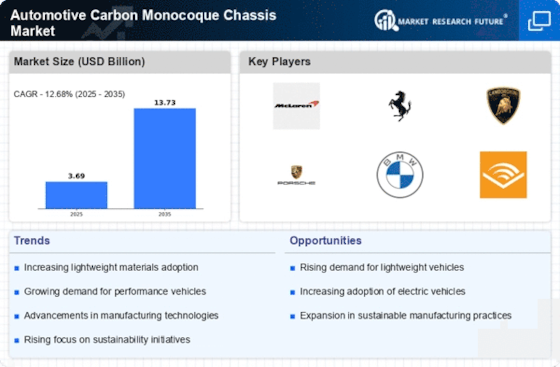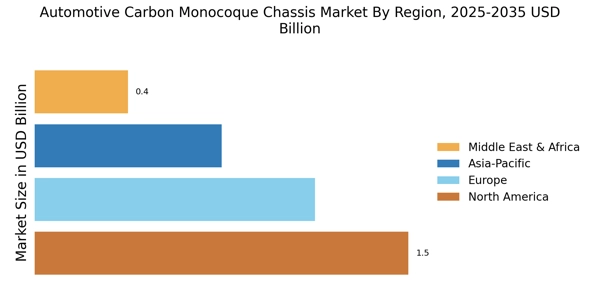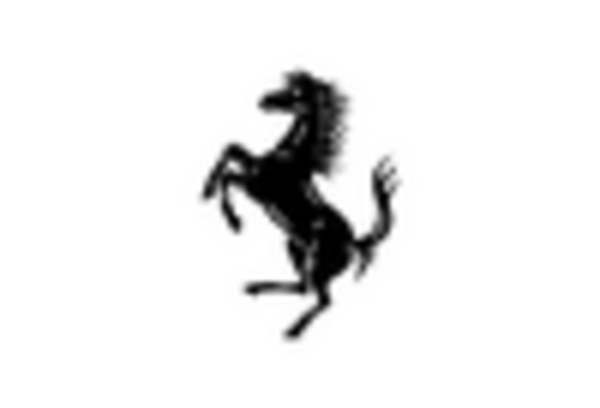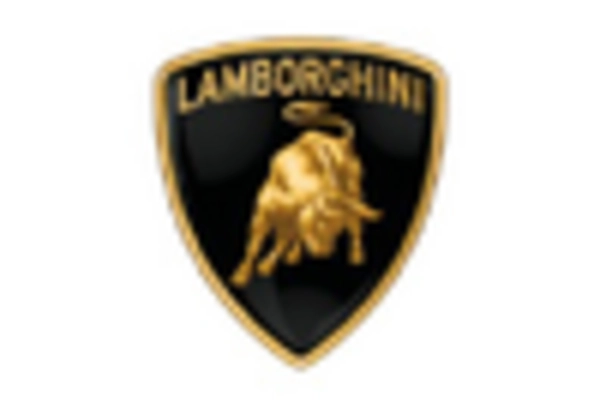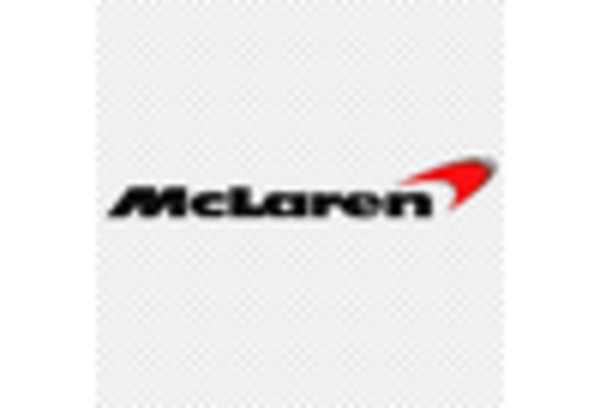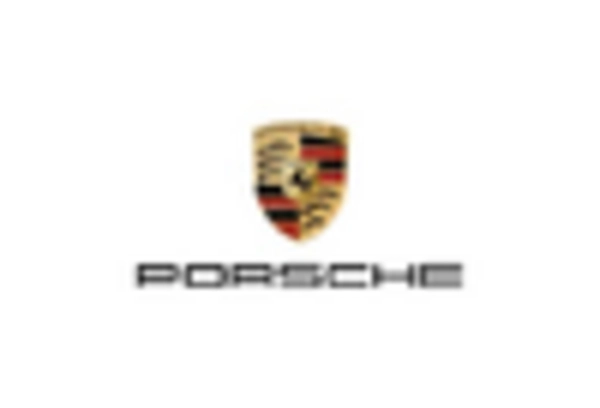Regulatory Compliance
Regulatory compliance is increasingly shaping the Automotive Carbon Monocoque Chassis Market. Governments worldwide are implementing stringent regulations aimed at reducing vehicular emissions and enhancing safety standards. As a result, automotive manufacturers are compelled to adopt innovative materials and designs that meet these evolving requirements. Carbon monocoque chassis, known for their lightweight and robust characteristics, are well-positioned to fulfill these regulatory demands. The market is likely to benefit from this trend, as manufacturers seek to align their products with compliance standards while also improving overall vehicle performance. This alignment not only enhances market competitiveness but also fosters a culture of innovation within the industry.
Electric Vehicle Demand
The rise in electric vehicle (EV) adoption is significantly influencing the Automotive Carbon Monocoque Chassis Market. As consumers increasingly favor EVs for their environmental benefits, manufacturers are compelled to develop lightweight chassis that optimize battery efficiency and range. Carbon monocoque chassis are particularly advantageous in this context, as their lightweight nature contributes to extended driving ranges. Recent data indicates that the EV market is expected to reach a valuation of over 800 billion by 2027, underscoring the potential for carbon monocoque chassis to play a crucial role in this burgeoning sector. This trend is likely to drive further investments in carbon fiber technologies, enhancing the overall market landscape.
Performance Enhancement
Performance enhancement remains a critical driver for the Automotive Carbon Monocoque Chassis Market. The inherent properties of carbon fiber, including high strength-to-weight ratio and rigidity, allow for superior handling and acceleration in vehicles. As automotive manufacturers strive to meet consumer expectations for high-performance vehicles, the demand for carbon monocoque chassis is likely to increase. This trend is particularly evident in the sports car segment, where manufacturers are leveraging carbon fiber to achieve remarkable speed and agility. The market is projected to expand as performance-oriented brands continue to adopt these advanced chassis solutions, thereby reinforcing the industry's growth trajectory.
Technological Innovations
Technological advancements play a pivotal role in shaping the Automotive Carbon Monocoque Chassis Market. The integration of advanced manufacturing techniques, such as automated fiber placement and 3D printing, is revolutionizing the production of carbon monocoque chassis. These innovations enable manufacturers to create complex geometries that enhance structural integrity while minimizing weight. Moreover, the market is projected to grow at a compound annual growth rate of approximately 15% over the next five years, driven by these technological breakthroughs. As automakers seek to improve vehicle performance and safety, the demand for innovative chassis solutions is likely to escalate, further solidifying the industry's trajectory.
Sustainability Initiatives
The Automotive Carbon Monocoque Chassis Market is experiencing a notable shift towards sustainability. As manufacturers increasingly prioritize eco-friendly practices, the demand for lightweight materials like carbon fiber is surging. This shift is driven by the need to reduce carbon emissions and enhance fuel efficiency. In fact, vehicles utilizing carbon monocoque chassis can achieve weight reductions of up to 50% compared to traditional steel structures. This reduction not only improves performance but also aligns with regulatory pressures for lower emissions. Consequently, the industry is witnessing a growing investment in research and development to innovate sustainable production methods, further propelling the market forward.


